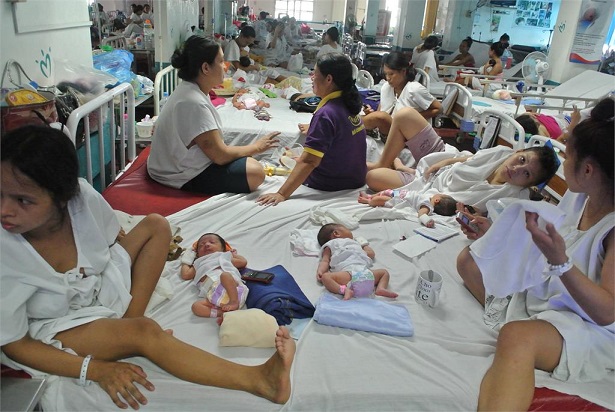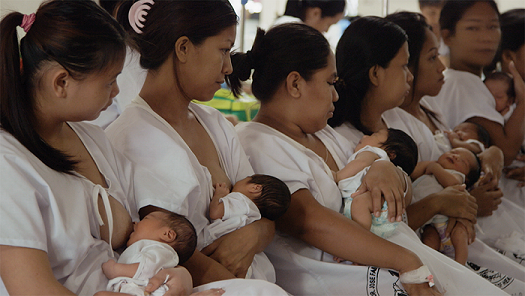‘Motherland,’ a documentary inside PHL’s busiest maternity hospital, screens in NYC Sept 8

Ramona Diaz’s documentary, “Motherland,” winner of World Cinema Documentary Special Jury Award for Commanding Vision at Sundance, has been set for theatrical release beginning September 8th in New York at the Cinema Village.
It will also open on September 22 in Los Angeles at the Laemmle Monica Film Center.
“Motherland” takes viewers into the busiest maternity hospital in one of the world’s poorest and most populous countries: the Philippines. The viewer becomes an unseen outsider dropped unobtrusively into the hospital’s stream of activity, passes through hallways, enters rooms, and listens in on conversations. At first, the surrounding people are strangers, but as the film continues, it becomes absorbingly intimate, rendering the women at the heart of the story increasingly familiar. In a hospital that is literally bursting with life, we witness the miracle and wonder of the human condition.
Diaz, a veteran documentarian, began filming in the search of a story on reproductive justice, visited the Dr. Jose Fabella Memorial Hospital in Manila, Philippines. As the busiest maternity ward in the world, it averages 60 births a day—and at its peak, as many as 100 babies within a 24-hour period. Fabella Hospital is the final safety net for very poor pregnant women, most of whom cannot afford either contraception or the $60 delivery fee.
Immersing the viewer with a ‘fly on the wall’ cinema verité approach, Diaz shares her experience of finding her story.
She said, “The images I saw at the hospital – the nurses who did their best to tame the noisy chaos of Emergency Room arrivals, the crowded corridors, the premature births and cramped recovery rooms with double occupancy of single beds – gripped me and wouldn’t let go. It was soon evident that the story I was looking for, a story about reproductive justice and maternal and women’s rights, unfolded within the hospital wall.”
“Motherland” is produced by Ramona Diaz and Rey Cuerdo and executive-produced by Brillante Mendoza, Sally Jo Fifer, Justine Nagan, and Chris White. The film is being released by The Film Collaborative in partnership with CineDiaz and Kidlat Productions.

Ramona Diaz: ‘The story that unfolds in Motherland, while taking place in the Philippines, is universal.’
The film was lauded by audiences and critics across the globe playing at notable festivals such as Sundance, Berlinale, Docville, Sheffield Doc Fest, The Sydney International Film Festival, Moscow Film Festival and is slated for fall festival screenings in Vienna, Warsaw and Zurich and several other cities.
In the film, three women—Lea, Aira and Lerma—emerge to share their stories with other mothers, their families, doctors and social workers. While each of them faces daunting odds at home, their optimism, honesty, and humor suggest a strength that they will certainly have to summon in the years ahead.
“Motherland” Statistics:
• Philippine population as of September 18, 2016: 102,575,650. It is 1.37 percent of the world’s population (UN estimates) with a growth rate of 1.72 percent a year, around 2 million births per year.
• It is the 12th most populous country in the world.
• More than 86 percent of the country’s population is Catholic.
• As a point of comparison, the U.S.’ population is 325,000,000 (give or take) and the landmass of the Philippines is equivalent to that of the state of Arizona.
• The Jose Fabella Hospital averages 60 deliveries a day, and as much as 100 deliveries in a 24-hour period. As a point of comparison, the busiest and largest maternity hospital in Europe, National Maternity Hospital in Dublin, averages 25 babies a day and the Winnie Palmer Hospital in Florida, averages 54 deliveries a day.
• The Philippine teenage pregnancy rate is the highest among the regional list of Asian countries that have the greatest number of teenage pregnancies. One in 10 young Filipino women — between 15 and 19 years of age — is already a mother.
• The factors that have affected teenage pregnancy rates include having multiple sex partners, low condom use, and social attitudes toward family planning which are heavily influenced by the Catholic Church.
© 2017 The FilAm












